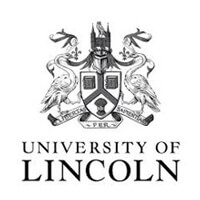fees waived
Bioveterinary Science, BSc (Hons), with industry placement
University of Lincoln, United Kingdom
Subject ranking
UK / ARWU 16th
UK / ARWU 17th
UK / ARWU 18th
Costs
food & rentS$16.8K / year
Entry requirements
Scholarships
Unlimited quantity
Unlimited quantity
Unlimited quantity
Unlimited quantity
Limited quantity
Limited quantity
Information
Code
Code
Intakes
Website (External)
Programmes
Information
Duration
2028
Course summary
The BSc (Hons) Bioveterinary Science degree at Lincoln gives students the opportunity to learn the science that underlies animal health and disease. The degree combines key elements of animal science with academically rigorous laboratory analysis. Students are introduced to the processes surrounding animal health including life histories of pathogens and parasites, infection and immunity, prevention measures, diagnosis and treatments. Students have the opportunity to study these issues in a range of animal species, including exotic and wild animals, as well as in humans. The first year of the degree introduces animal health and disease in light of animal anatomy and physiology, cell biology, genetics and the biochemistry of metabolism. The second year provides the opportunity for students to pursue individual interests within a wide range of topics, including animal behaviour, protection, toxicology and reproduction. In the final year, students embark upon individual research projects and are provided the opportunity to travel overseas to participate in research field trips as part of the optional 'Overseas Field Course' module. All full-time Bioveterinary Science students may take an optional placement year between the second and third year of the programme. For the most up to date module information, please visit the course page for this programme on our website. Some programmes provide you with the opportunity to focus your study in a particular area through optional modules. Timetabling arrangements may limit the availability of some optional modules to some students. As the options often reflect staff research interests, they may alter over time due to staff availability. The way students will be assessed on this course will vary for each module. It could include coursework, such as a dissertation or essay, written and practical exams, portfolio development, group work or presentations to name some examples. Throughout this degree, students may receive tuition from professors, senior lecturers, lecturers, researchers, practitioners, visiting experts or technicians, and they may be supported in their learning by other students.Modules
Assessment method
The first year of the degree introduces animal health and disease in light of animal anatomy and physiology, cell biology, genetics and the biochemistry of metabolism. The second year provides the opportunity for students to pursue individual interests within a wide range of topics, including animal behaviour, protection, toxicology and reproduction. In the final year, students embark upon individual research projects and are provided the opportunity to travel overseas to participate in research field trips as part of the optional 'Overseas Field Course' module. All full-time Bioveterinary Science students may take an optional placement year between the second and third year of the programme. For the most up to date module information, please visit the course page for this programme on our website. Some programmes provide you with the opportunity to focus your study in a particular area through optional modules. Timetabling arrangements may limit the availability of some optional modules to some students. As the options often reflect staff research interests, they may alter over time due to staff availability.
A local representative of University of Lincoln in Singapore is available online to assist you with enquiries about this course.

